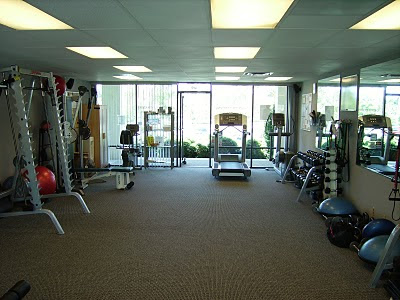Hey. I hope you are having a great week. I'm hanging in there, but I have to admit that I have been dragging this week. With all of the traveling I have been doing, it is catching up with me. I am ready to get some solid sleep and recovery.

One common issue I hear from clients is their lack of sleep. Most people will just ignore this by having extra coffee or some other energy drink. These methods will most likely cause more harm than good. If you are tired there is really only one cure. You need to get rest. Caffeine and energy drinks will just hide this and make you even more tired when they wear off.
In fact, there is evidence that lack of sleep with lead to weight gain. We need sleep for a variety of reasons including recharging energy, our muscles recover and rebuild during sleep, and it allows the brain time to store experiences as memories. There are three major reasons why lack of sleep will lead to weight gain.
 First, our hormones can be effected by our sleep patterns
First, our hormones can be effected by our sleep patterns. Specifically, when we get less sleep there may be an increase in Cortisol levels, which has been shown to increase food intake and increase abdominal fat storage. Sleep deprivation is also associated with a decrease in Leptin from fat cells. As Leptin decreases the hypothalamus interprets this as the fat cells need more food for energy, which makes you feel hungry. When Leptin levels decrease there will be an increase in Ghrelin, which stimulates hunger.
So in summary you feel more hungry even though you don't need to food and the extra calories will be stored in your abdominal area.Secondly, there can be a disruption in glucose metabolism. Researchers are finding a high link between sleep deprivation and diabetes. It is hypothesized that less sleep will lower levels of insulin secretion and impair glucose utilization.

The final reason may be very simple, but it is very true.
Less hours spent sleeping means there are more hours awake for snacking or being sedentary. When people don't sleep well they are going to feel very tired during the day. This means they will most likely not want to workout and more likely to choose higher calorie and caffeinated snacks and beverages.
There are a number of reasons why people may be sleep deprived. Some can be simple fixes while others will be more complex and take time.
Here are 10 tips to help get a better nights sleep taken from the University of California's Wellness Newsletter:1. Cut down on caffeine consumption in the late afternoon and evenings.
2. Do not smoke or use any other products with nicotine before bed. (More importantly just quit smoking)
3. Create a noise free sleeping environment.
4. Create a sleep-friendly bedroom by using comfortable linens and pillows, put up darker shades, replace worn out mattresses, and keep the bed cool during sleep hours.
5. Drink fewer fluids after dinner.
6. Attempt to deal with stressful issues during the day and put them away at night. (seek professional consultation if necessary)
7. Set a regular time to go to bed and a consistent time to wake up. Stick to this every day.
8. Avoid bringing work projects and personal paperwork to bed.
9. Avoid bringing food to bed.
10. Limit naps to a maximum of 30 minutes and try to take the naps earlier in the day.

To summarize, I remember something my old boss said in grad school about sleep.
"The only thing you should be doing in bed is sleeping." I strongly recommend not watching tv, reading, or eating in your bed. When you lay down to go to sleep it should be a signal to your brain to shut off and go to sleep. We tend to be very habitual. Once you start a pattern it will be much easier to stick to.
You stay healthy San Diego,
Mike Deibler MS, CSCS
San Diego Personal TrainerMy Workout Creator
 Ingredients:
Ingredients:









-1.jpg)










